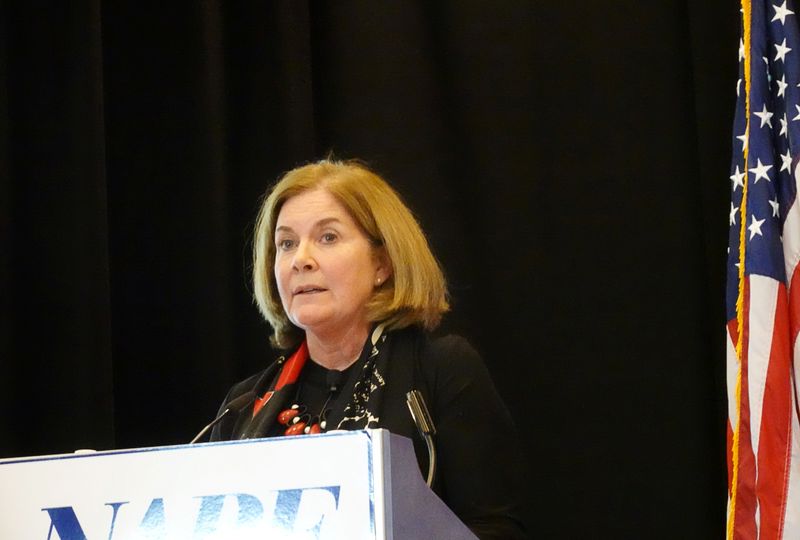WASHINGTON (Reuters) – The current recession’s impact on households and businesses could still risk the sort of damage to the banking system that the United States has avoided so far, Kansas City Federal Reserve president Esther George said on Friday.
Throughout the pandemic Fed officials have taken solace in the fact that it has not yet led to a wave of mortgage, business or other defaults that could cripple banks, cause them to stop lending, and deepen the recession.
But “the economic recovery…is far from complete,” George said in remarks prepared for delivery via the web to the Independent Bankers of Colorado. “Strains on household and commercial balance sheets since March have created fragilities that could yet threaten bank profitability and loss-absorbing capacity for some time.”
She is the second Fed official, along with Boston Federal Reserve bank president Eric Rosengren, to explicitly warn this week that credit strains could still mount as the recession and health crisis persist.
Community banks in particular, George said, given their exposure to volatile agriculture markets and the strained commercial real estate industry, “must remain vigilant.”
“Strained business revenues and commodity prices threaten the ability of some borrowers to repay their obligations,” she said.
George also said she was concerned that the pandemic and recent regulatory changes may speed consolidation in the banking industry, with “both regulation and monetary policy…tilting the scales in favor of larger banks.”
Arguments to ease capital requirements for larger banks are “not compelling,” George said, noting that larger firms “distributed more than $50 billion of capital through shareholder dividends and share repurchases” even as the pandemic took hold.
(Reporting by Howard Schneider; Editing by Andrea Ricci)



















